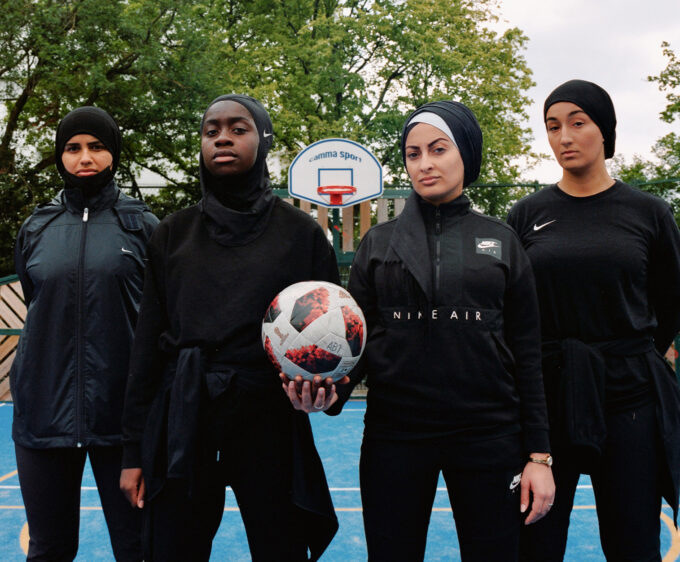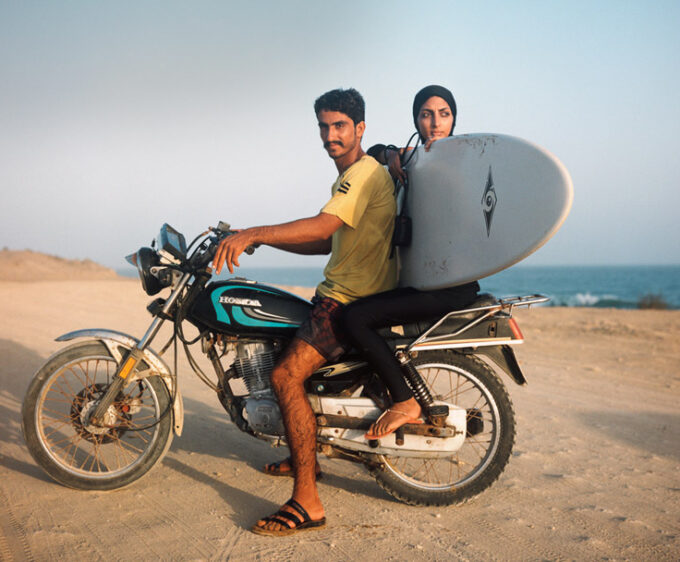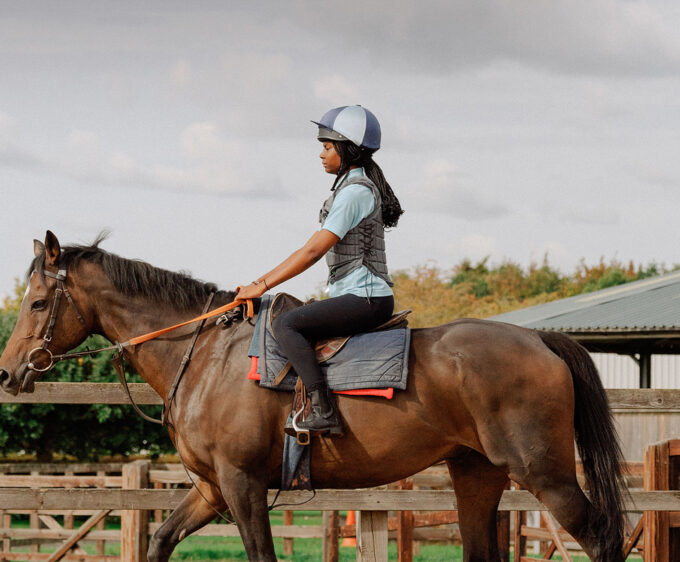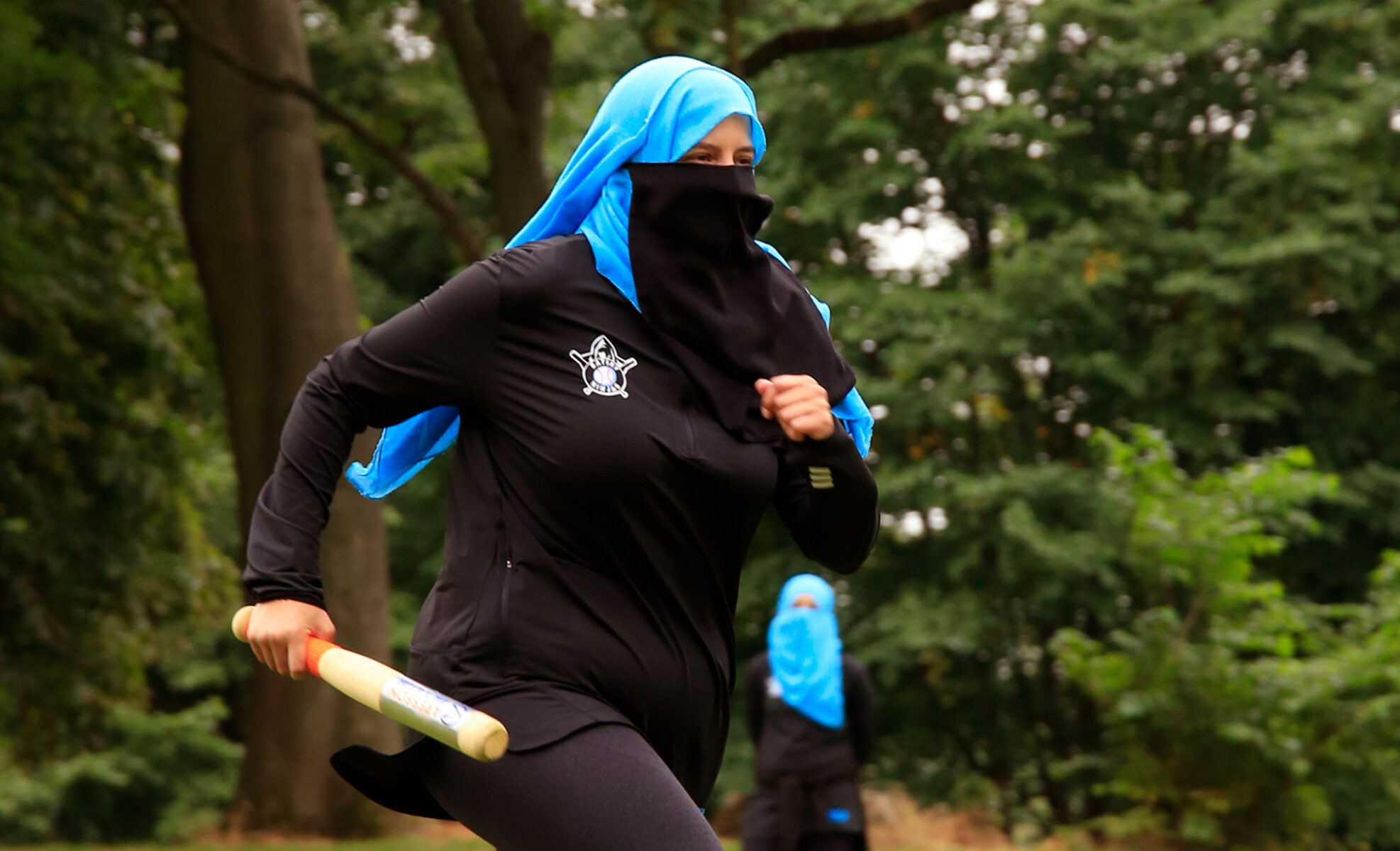
Batley Ninjas: More Than Just A Team
The Batley Ninjas rounders team does more than play a game, it’s a lifeline and a confidence builder. We chat to team captain Sofiya Makda
By Glorious
Started in 2015, the Batley Ninjas team is now a popular institution in the West Yorkshire market town. The rounders team is a self-funded gathering that has introduced sport to a community that isn’t usually known for its sporting endeavors – namely women from the south Asian community. And it’s given its members more than just a reason to get out, get healthy and make friends: the members radiate a sense of pride and confidence, inspired by taking part in training sessions and matches. Some have even gone on to find careers in the sports industry. The current captain of the team, a self-made business woman called Sofiya Makda, talks about the team and its successes
Glorious: Tell us about yourself – where did you grow up? And tell us about your family and career to date.
Sofiya Makda: I grew up in Chatham, Kent. My family moved up to West Yorkshire when I was 15. Currently I run my own business called Candylicious, catering for parties and weddings. And at the start of this year, I and a fellow Ninja (Anisha Akhtar) opened a female-only gym called StrongHer. The idea is to empower women in fitness, and give them a safe space to do so.
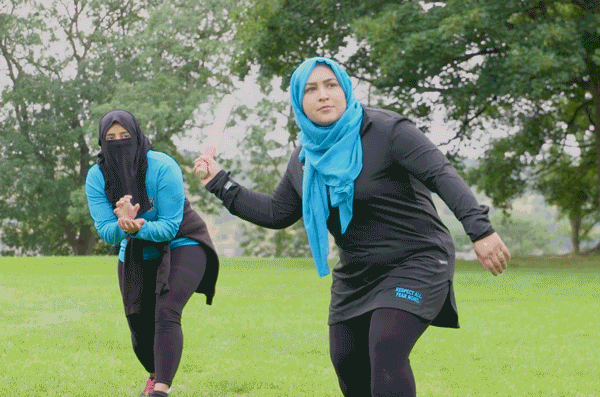
Glorious: Did you have an interest in sport growing up, did you have opportunities to play and compete?
Sofiya Makda: As a young girl, I wasn’t very confident. I loved sports, but wasn’t among the ‘elite’. I was in a netball team at school, then after we moved up north I never really got a chance to do anything. It was only once I had my children that I decided I wanted to do something with them. Luckily for me there was a local organisation called Ready Steady Active, run by Rashida Salloo. Through her I was able to start participating in physical activity after such a long time.
PERFORMANCE
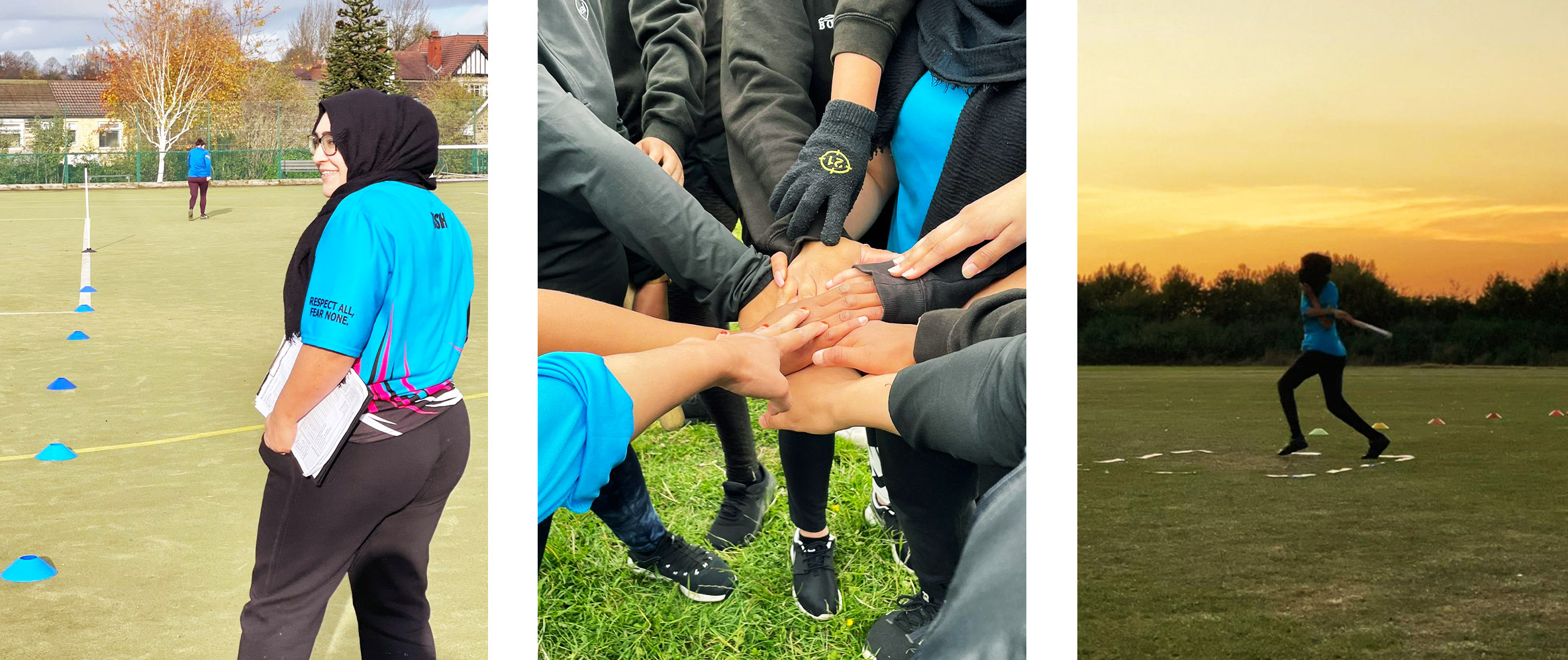
Glorious: When and why did you establish and become captain of the Batley Ninjas – and why rounders?
Sofiya Makda: It was through Ready Steady Active that our love for rounders started, and where the name Batley Ninjas originated from. Rashida had asked us to pick a name for a mini tournament that she ran and we felt our name was tongue in cheek. Batley Ninjas was born for that first tournament. There was a second tournament, after which Rashida realised there were too many women and split us all into four teams, letting us take the Ninja name since it had been the brainchild of my second daughter, who was captain at the time. She later became pregnant and I accidentally fell into the role of captain and it stuck. We stayed with rounders because it was fun and also almost anyone could participate, but it still had the competitive element.
Glorious: Is the team funded and is it open to anyone of any faith?
Sofiya Makda: The team is self funded; we do manage to get funding here and there, which we put towards different projects. One such recent one was getting a team up and running in Huddersfield, who have named themselves the HD Warriors. We also participate in local community projects, introducing rounders to women. We are open to absolutely anyone who wants to join us, faith is not an issue and we are open to diversifying and encouraging anyone to get fit.
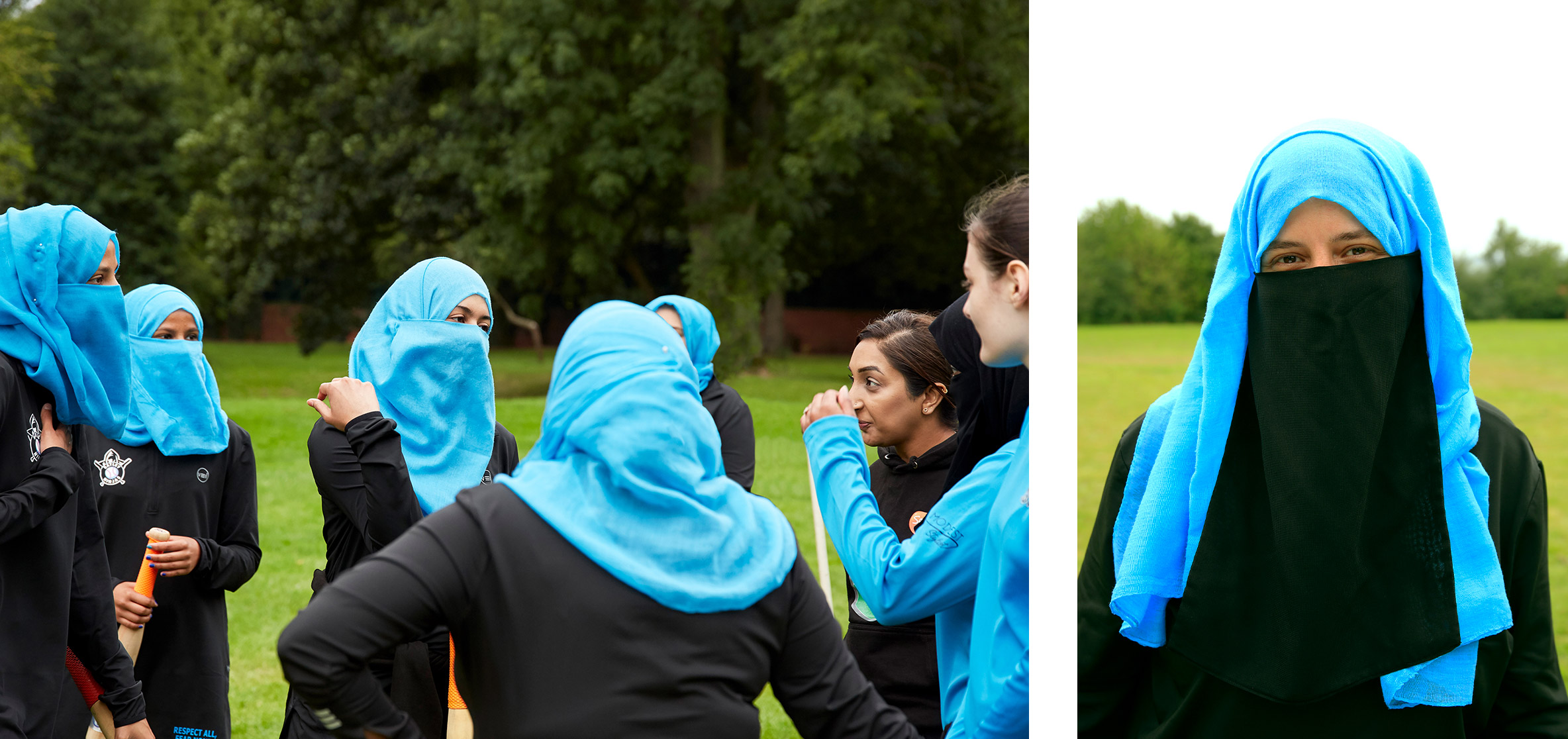
Glorious: Was it easy to generate interest at the beginning? Were women apprehensive and what were their reactions when starting to play?
Sofiya Makda: When we first started I think people felt it was just a hobby, not something they had time for. Life was more important. As time has gone on and people started to realise the importance of fitness and wellbeing, we have had more enquiries. Recruiting in the beginning was like banging our heads against a brick wall. Now through the powers of our social media and work in the community, it has opened a door, an understanding that almost anything is possible. One of the reasons rounders appeals to many of the women and girls we work with is the fact that it’s not too demanding. We tell them just to come along for fun and we offer the first session for free so they can see for themselves.
Glorious: Do many of the women come from a background of playing sports and if not, why was that the case? Does playing rounders now inspire them to seek out other sports?
Sofiya Makda: The sentence we hear most is: “We haven’t played rounders since high school”. Women start playing and then the competitiveness just automatically kicks in. What many people fail to understand about rounders is that it is a very tactical game, and much of it is based on the knowledge of the rules, it’s not just about being able to whack a ball! Usually we get feedback that they haven’t had as much fun in ages, and it made them feel young again. Many ladies will say they love this as their “me” time, away from family responsibilities. It de-stresses them.
SHOWCASE
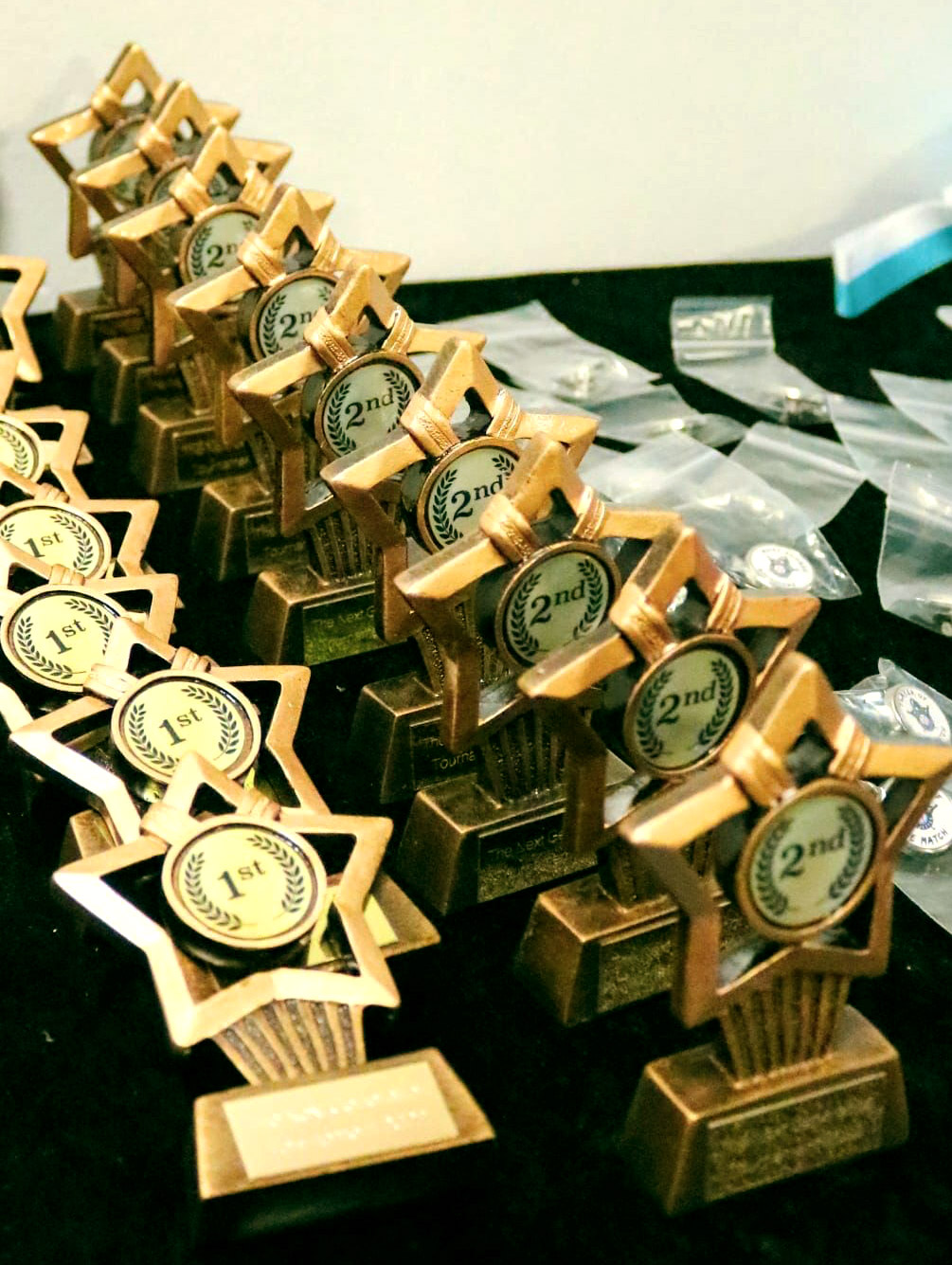
It has helped my players grow in confidence and develop career paths. One has gone on to apply for a teaching job in a college and got the job. She wears the veil, so this was a big thing for her.
My youngest daughter has qualified as a Level 3 multi-sports coach and can also work with SEN children. We have 11 umpires on the team now, six have qualified as intermediate umpires, so can now umpire nationally. We have nine Level 1 coaches and three Level 2 coaches. I’m currently in the process of funding for two of the ladies from HD Warriors to become Level 1 coaches so they can take over from us. To say I’m proud of these girls is an understatement.
Glorious: How competitive have the players become? Does your team play matches against other clubs?
Sofiya Makda: All of the ladies are super competitive, we have yet to win a league but work hard against very tough competition.
The West Yorkshire League has now expanded into five divisions and we are currently in Division 2. I find that due to Asian women’s lack of sports participation it takes us longer to get to a higher level of play but that doesn’t mean we don’t try. One of our best matches recently was one where the team was playing with seven players (usually you play with 9) against another team called Woodkirk Valley Wildcats. It was an end of division match, it was getting dark quickly, and my girls smashed it out of the park. It was easily one of the most exciting matches we’ve played. I advised my bowler to bowl, and then move to cover first base. She’s fast and managed to do it, getting many of the opposition out. They were not expecting that!
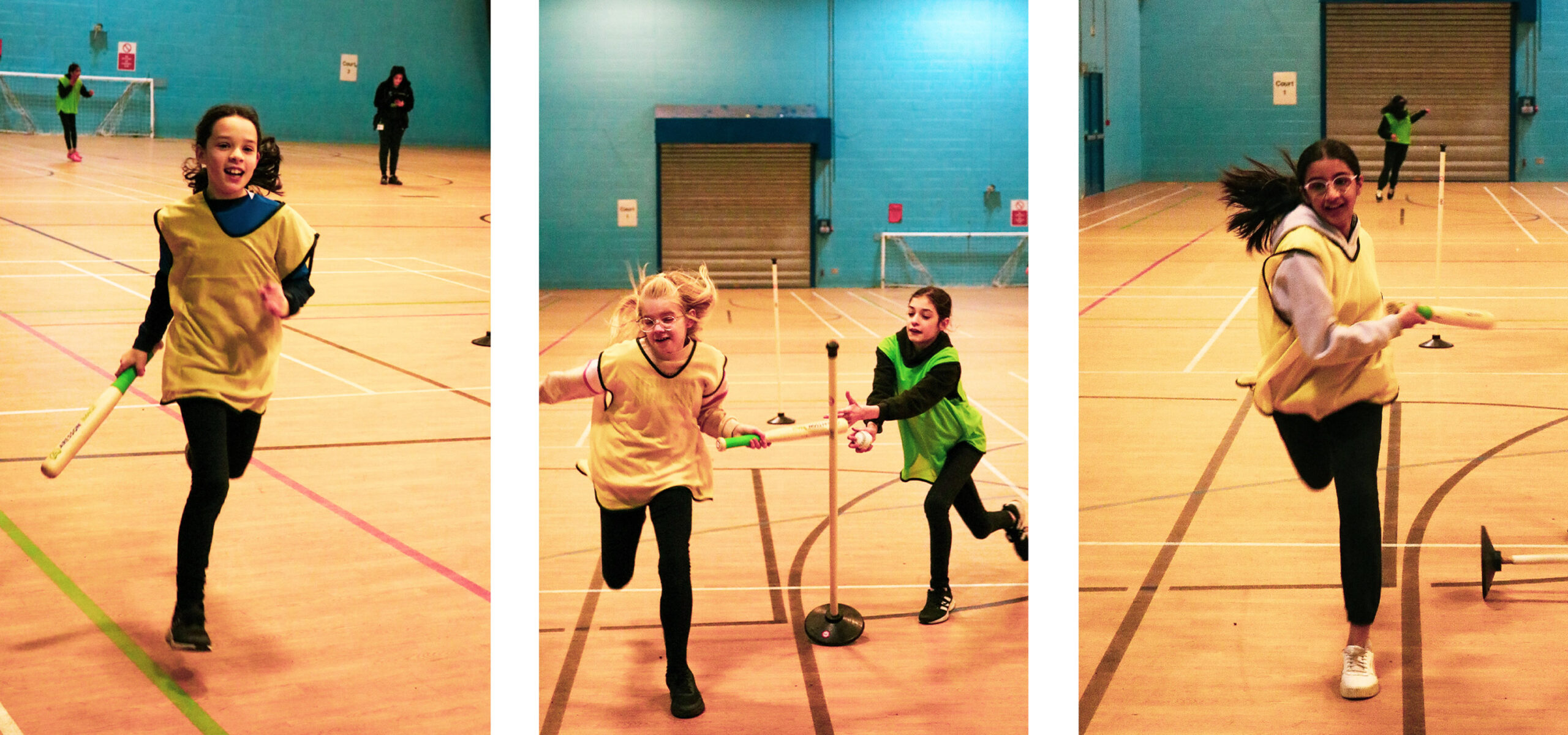
Glorious: As team captain, what are your biggest challenges?
Sofiya Makda: Some challenges we face are: keeping members to attend training sessions, sourcing a pitch to play on and motivating players when it doesn’t go well. But juggling all the work is what goes with being a captain. It can be physically and mentally draining, especially as I have two other businesses. Being captain also involves admin work, treasury, sourcing funding, making sure kit is where it needs to be and finding someone to respond to enquiries, emails and so on, when you’re not there.
Glorious: Due to popular demand, you introduced The Ninjettes, a team for pre-teen girls. Tell us about this.
Sofiya Makda: Ninjettes was introduced due to people asking me if their girls could join us. We also did a summer camp at the local cricket club and gained interest from a couple of girls there.
Long term, I realised adults were too competitive and I was worried about the safety of the girls, so it was decided to start the girls’ team for ages 9 to 15.
When they were confident enough, after age 14 they could join the adults team (we’ve recently taken six girls on from Ninjettes). The difference is we use a Softy ball and wooden bats and the warm up and drills are a bit more “fun” than regular training. This has really gained traction, and at one point we had 30 girls. The issue we now face is that there is no league for juniors. I’ve tried starting one, however other teams are very slow in getting started or wanting to participate. We have held at least two Ninjette tournaments, which have been a great success. And this led to Rounders England asking us to try and pilot a junior league. The joy is seeing the girls play, they are amazing at such a young age. You know when they are ready to move to the adults team, when they find the kids sessions boring!
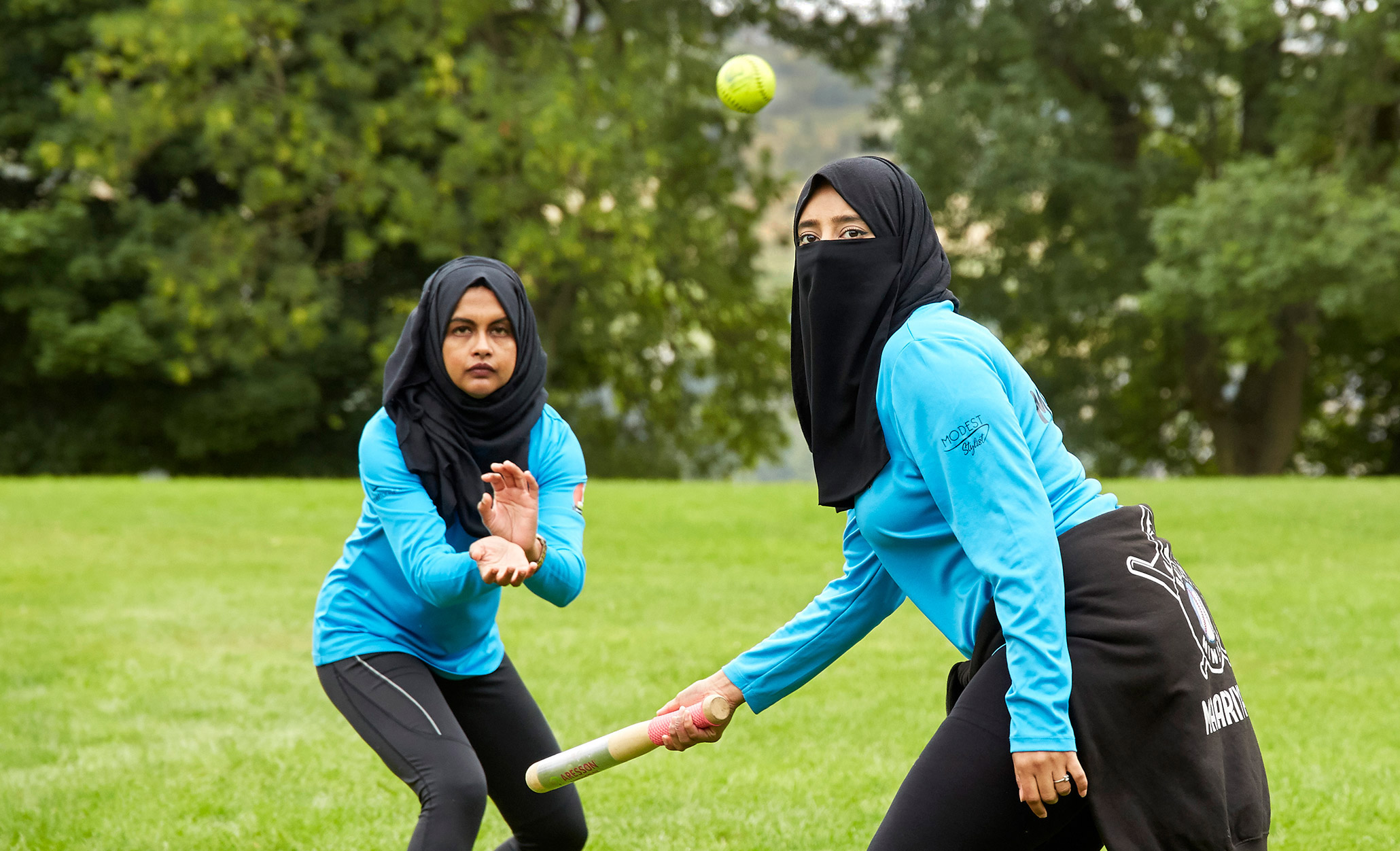
COMMUNITY
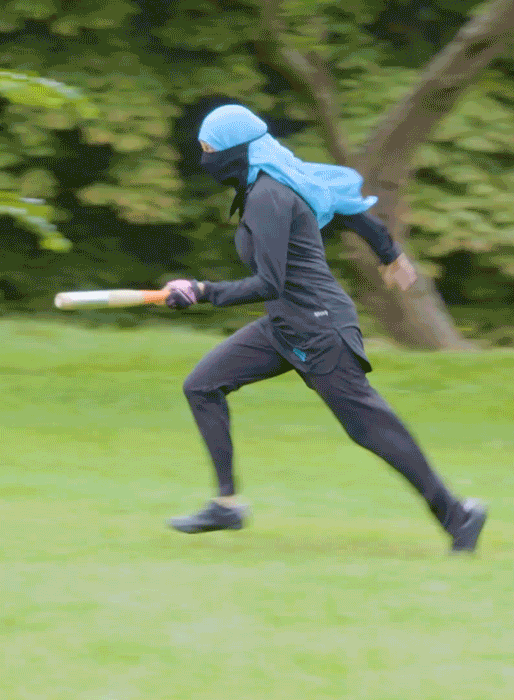
Glorious: What impact has the Batley Ninjas had on your life and the lives of your daughters?
Sofiya Makda: It has been absolutely phenomenal. I sometimes wonder if I am the same person. It has given me the confidence to go from being an overweight housewife to business owner and captain, among other things. For my girls I think each has found their own niche of what they want to do in life, such as my youngest becoming a sports coach. She is very instrumental to the Ninjettes and often tells me to leave it to her. My second daughter has developed a love for hiking and is aiming to become a mountain leader. We all went for our first hike with Muslim Hikers, due to us not having the confidence to go alone. Now she’s always popping off for hikes. My fourth child was married in September and is slowly returning to rounders. We are currently gearing up to start the summer league, at the end of April.
Glorious: What do you believe needs to be done to help more women from ethnic minorities get into sport? Do you think it’s becoming more widely accepted to see women playing sports wearing a hijab or niqab?
Sofiya Makda: I do feel that it’s becoming more common in all sports now – and that’s fantastic. I think that funding has helped, but could help more if delivered to the right area and the right people.
Sessions are often short lived. More long-term projects would really help. Sadly we are moving into a time where low income is a big issue.
Glorious: How has Batley Ninjas developed since 2015 and what’s next?
Sofiya Makda: As a team I feel we have become representative of our local ladies. We still have seven of our original members. We are quite well known through our social media and I feel that because of that we are bringing a different kind of respect to women in sports, from a cultural perspective.
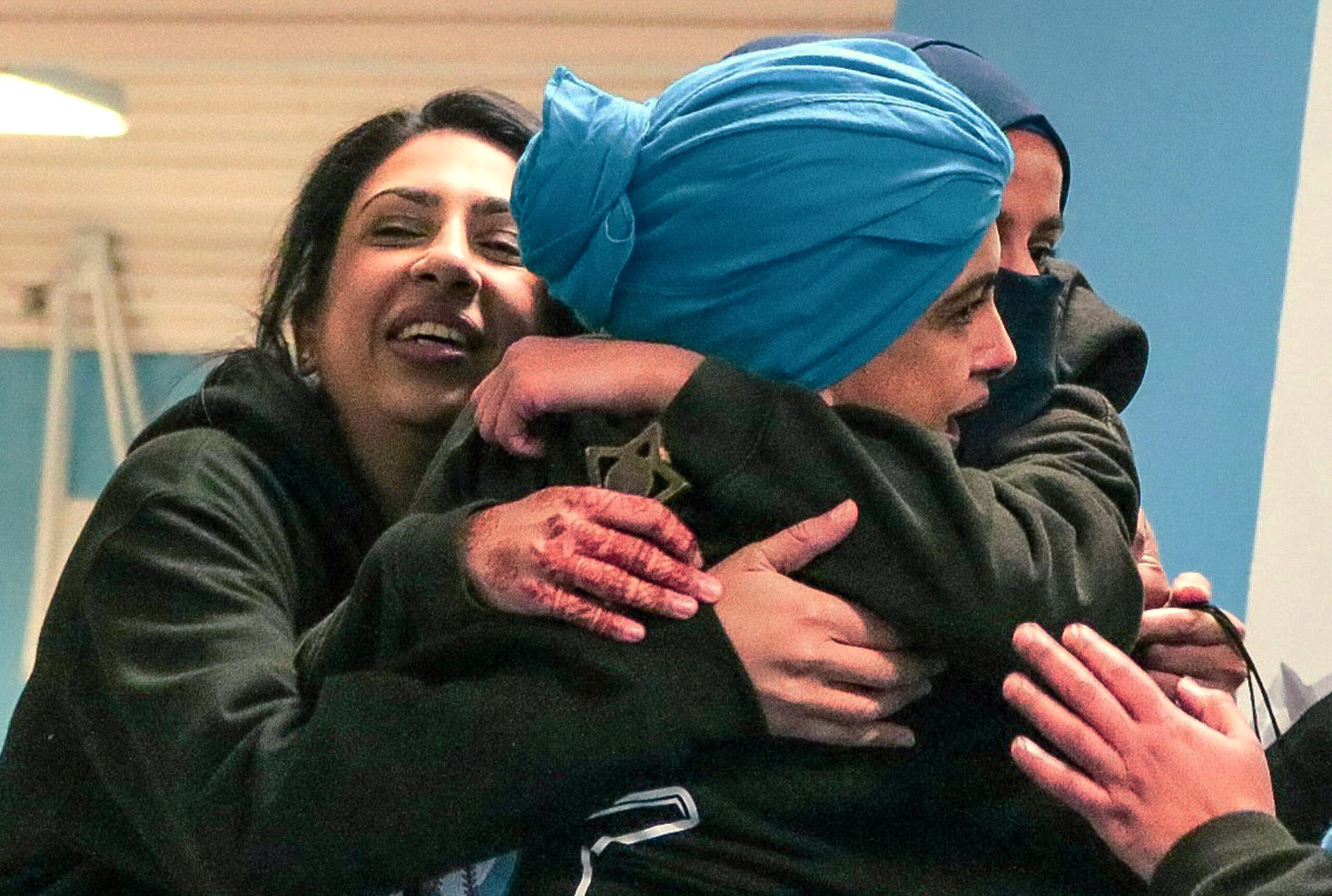
Editorial Design by this is root, Title Image by Heiko Prigge – Captain Sofiya Makda out to score a rounder

